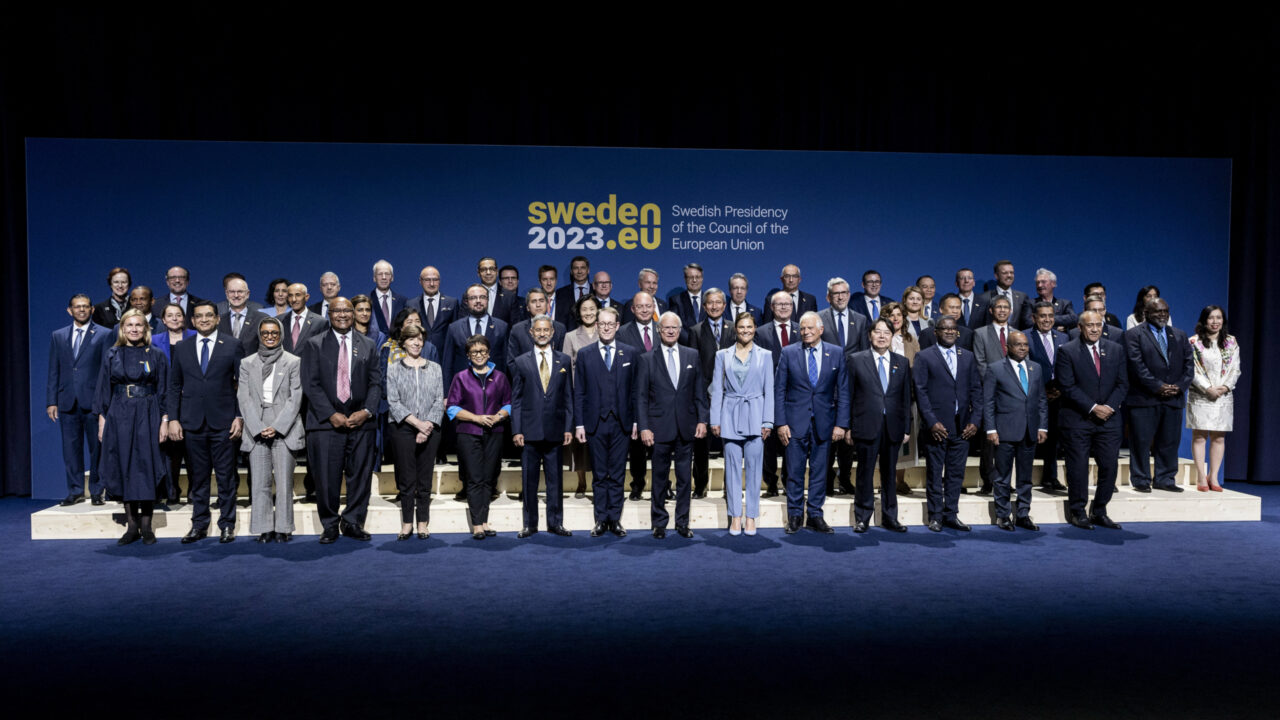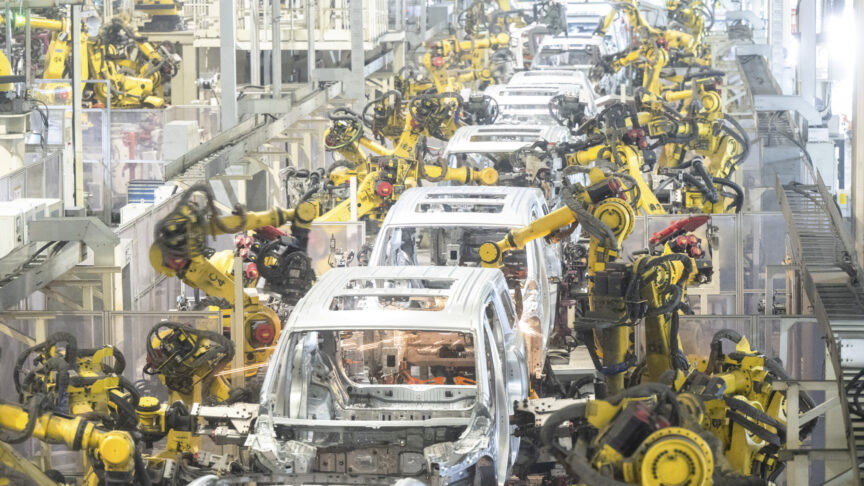Looking beyond China: Why it’s time to refresh the EU’s Indo-Pacific strategy
As ties between Europe and China continue to cool, European leaders should refocus their energies on strengthening relations elsewhere in the Indo-Pacific
On 7-8 December, EU leaders will meet with their Chinese counterparts in Beijing for the European Union-China summit, the first such in-person meeting in four years. Discussions will range from possible climate cooperation to the EU’s anti-subsidy probe on Chinese electric vehicles. But ongoing tensions between the two sides mean that the odds of progress on these and other issues are low. Europe’s strained bilateral relationship with China should instead prompt the EU to refocus its energies on building deeper economic and security ties elsewhere in the Indo-Pacific.
The EU first launched its Indo-Pacific strategy in 2021, touching on areas from economic prosperity and climate to connectivity and defence. Strategic developments in the Indo-Pacific have continued to impinge upon European security since then, not least the ever closer ties between China and Russia. Yet the EU’s Indo-Pacific approach remains a work in progress. As EU foreign policy chief Josep Borrell noted in Singapore in June, “Europe is still largely seen as an extra-regional actor with limited impact on the regional security dynamics of the Indo-Pacific”.
Borrell’s assessment is shared around the region. Take Indonesia for example, where the EU’s recent push to finalise a long-awaited trade deal with south-east Asia’s largest economy ought to have improved perceptions of Europe. Instead, defence minister Prabowo Subianto, who is also a leading candidate in next year’s presidential election, recently berated the EU’s trade rules and its record on human rights promotion. “There’s a shift in the world,” Subianto said last month, “we don’t really need Europe anymore.”
Views of this kind should alarm EU leaders. But they also present a conundrum. Prabowo is right that there is a shift in the world: middle and regional powers in Asia and beyond are seeking new strategic relationships to hedge against rising geopolitical tensions. As a recent ECFR report found, we have entered an “à la carte world”. Instead of choosing from a set menu of political alignment, non-Western countries prefer to mix and match their partners depending on the issue at hand. Here, Indo-Pacific countries should see Europe as a geopolitical opportunity, precisely because so many are looking to diversify away from excessive reliance on either China or the United States.
Indo-Pacific countries should see Europe as a geopolitical opportunity, precisely because so many are looking to diversify away from excessive reliance on either China or the United States
To begin to capitalise on this development, Europeans first need to recognise existing regional divisions. On one side stands a group of so-called like-minded nations that are anxious about China’s rise and tied closely to the US. This most obviously includes the quartet of Australia, Japan, the Philippines, and South Korea. India, although more independent in outlook, also shares much in common with this group given its growing security concerns about China and recent moves to draw closer to the US. On the other side is a larger grouping of broadly non-aligned nations. These include most members of the Association of Southeast Asian Nations (ASEAN), along with south Asian states and the Pacific Islands, none of whom want to choose between the great powers.
That said, both Indo-Pacific camps are seeking to develop a broader array of geopolitical options. The countries in the non-aligned group are focused primarily on economic prosperity, as they face up to slowing global growth. They welcome moves to calm ties between Beijing and Washington, exemplified in the recent meeting between US president Joe Biden and Chinese leader Xi Jinping. But they also see the West’s de-risking agenda as a potential opportunity, as factories and investment from European and American companies begin to move away from China to locations elsewhere in Asia.
The like-minded group continues to seek closer ties with the US. But these countries are also building closer ties amongst themselves and with others, including in Europe. India is one example, where worries about China have pushed the government to develop closer relations with Europe in recent years. Elsewhere, America’s closest partners are currently working out the implications of the recent thaw between Washington and Beijing. They are also thinking through scenarios in which Donald Trump returns as US president after next year’s election. In both cases, the instinct will be to seek new hedges against rising uncertainty and to deepen partnerships with those who support the existing regional order, in case a second Trump administration disrupts it.
This multi-alignment moment provides European leaders with an unusual geopolitical opportunity to refresh the EU’s Indo-Pacific strategy. Improving economic ties should remain a central focus. The EU is currently working on trade deals with Indonesia and the Philippines, amongst others. The likes of Malaysia or Thailand would also welcome European moves to support de-risking and supply-chain relocation, if it increased the odds of European businesses moving operations to Kuala Lumpur or Bangkok. The EU could also do more on digital trade, building on progress towards a digital trade agreement between the EU and Singapore. More radical still would be an attempt to link Europe with the 11-nation Comprehensive and Progressive Agreement for Trans-Pacific Partnership trade deal, creating closer alignment between two of the world’s biggest trading blocs.
Secondly, a stronger and more coordinated EU security offering would make the Indo-Pacific strategy more credible in a region where military and security commitments are viewed as a marker of serious engagement. European Commission president Ursula von der Leyen has recently taken a tougher approach to regional trouble spots. In April she cautioned China against any use of force in the Taiwan Strait. During a visit to Manila in July, she also spoke out against “threats of coercion” in the South China Sea and promised EU support for the Philippines coast guard. More European participation in joint military exercises and greater coordination of European maritime presence would be further welcome signs of a more serious contribution to regional security, pushing back against the view that the EU is an “extra-regional actor”, to use Borrell’s phrase.
Finally, there is clearly space for more imaginative bilateral and minilateral partnerships. New minilateral arrangements dot the region, including AUKUS and the Quad. There are reinvigorated trilateral arrangements too, for instance between Japan, South Korea, and the US. The EU has struggled to find a place within such groupings. But its involvement in the new India-Middle East-Europe Economic Corridor, recently launched at the G20 summit, suggests that the EU is capable of playing a greater role in other minilateral groupings in future.
There are plenty of recent examples of imaginative new bilateral partnerships too. Last year, the US and India announced a high-profile initiative on critical and emerging technology — known as iCET — which aims to build deeper tech and defence industrial cooperation. The United Kingdom signed a wide-ranging “Hiroshima Accord” with Japan and a similar deal with South Korea. There is no reason Europe should not seek to work with particular nations in the Indo-Pacific to fashion similar à la carte bilateral ties, fit for a more à la carte world.
Over recent decades Europeans have viewed their ties with Asia predominantly through the lens of China. That approach now offers diminishing returns. Relations with China are increasingly weighted towards systemic rivalry and competition, not partnership. As European leaders land in Beijing this week for what promises to be a frosty meeting, they should really be thinking about how to warm ties elsewhere in the region instead.
The European Council on Foreign Relations does not take collective positions. ECFR publications only represent the views of their individual authors.



